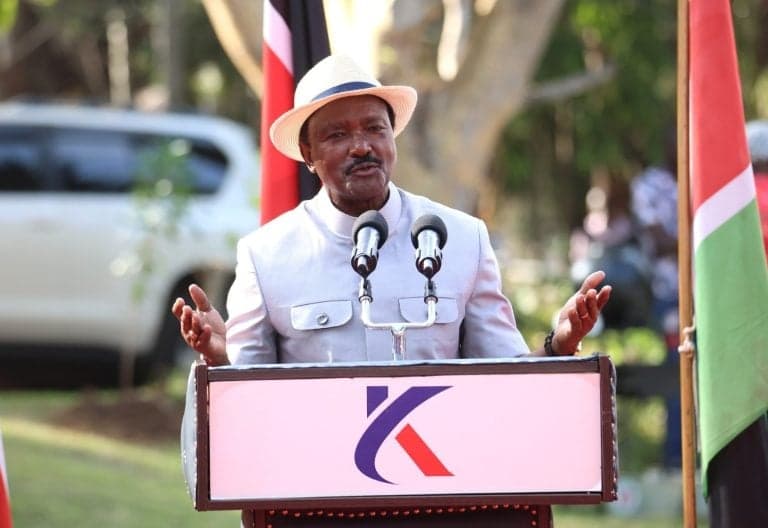We're loading the full news article for you. This includes the article content, images, author information, and related articles.
Wiper Patriotic Front (WPF) leader Kalonzo Musyoka has decisively ruled out serving as a running mate in the 2027 elections, publicly affirming his ambition to vie for the presidency himself.

Nairobi, Kenya — Sept 25, 2025 (EAT).
Wiper Patriotic Front (WPF) leader Kalonzo Musyoka has decisively ruled out serving as a running mate in the 2027 elections, publicly affirming his ambition to vie for the presidency himself. His declaration reflects a sharper posture in what promises to be a highly contested opposition field.
In a televised interview, Kalonzo dismissed speculation that he might accept a deputy position, saying, “I don’t think I would be a running mate in 2027… it is too late for any games to be played against me.”
He framed the speculation as part of a “misinformation campaign” and made clear that his political focus is fixed on becoming the top candidate rather than supporting others.
His move coincides with rebranding from Wiper to WPF and attempts to appeal more directly to younger voters and those seeking change.
Kalonzo has previously served as a running mate three times: in 2007, 2013, and 2017, always backing a presidential candidate rather than contesting himself.
The opposition space ahead of 2027 includes prominent figures such as Rigathi Gachagua, Martha Karua, Fred Matiang’i, and Eugene Wamalwa—all of whom also harbor presidential ambitions.
Kalonzo’s refusal to accept a deputy role signals he is attempting to recast his image—from perennial coalition partner to front-line contender.
Negotiation leverage: By ruling out the deputy path, Kalonzo strengthens his bargaining position in coalition talks.
Factional resistance: Other opposition leaders may see his stance as narrowing options for forming a unified front.
Credibility test: He must convert rhetorical ambition into visible support, particularly in strongholds and among younger voters.
Electoral math: To win, he must assemble a broad coalition—not just rely on his base in Ukambani or the Eastern region.
Whether other opposition parties will accept Kalonzo as a leading standard-bearer or push for internal primaries.
How his stance will affect past alliances, particularly with ODM and its base.
What policy agenda he will offer to differentiate himself in a crowded field.
Whether this posture is a permanent break with coalition politics or a tactical move.
Keep the conversation in one place—threads here stay linked to the story and in the forums.
Sign in to start a discussion
Start a conversation about this story and keep it linked here.
Other hot threads
E-sports and Gaming Community in Kenya
Active 9 months ago
The Role of Technology in Modern Agriculture (AgriTech)
Active 9 months ago
Popular Recreational Activities Across Counties
Active 9 months ago
Investing in Youth Sports Development Programs
Active 9 months ago
Key figures and persons of interest featured in this article